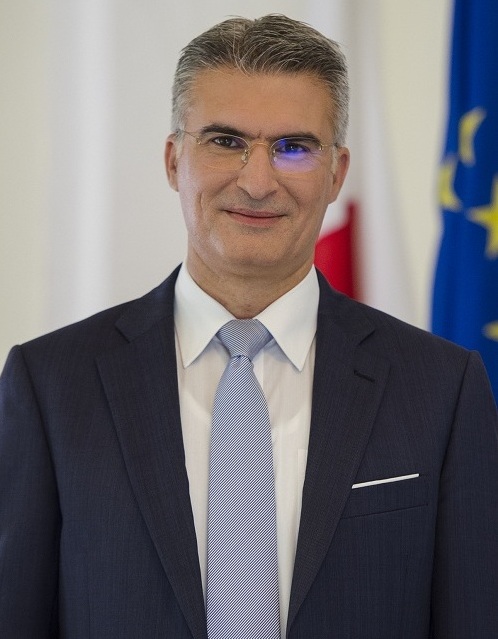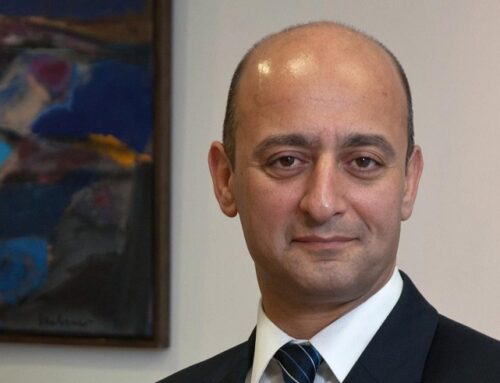By officially expanding the portfolio of the Ministry for Foreign Affairs with the addition of Trade Promotion in 2017, the Government of Malta sought to put a spotlight on the importance of making the best possible use of the country’s diplomatic networks to continue building relationships, identifying trade opportunities, showcasing the economy and culture, and enhancing Malta’s reputation overseas, while maintaining a traditional high-quality foreign affairs sector. Carmelo Abela, Minister for Foreign Affairs and Trade Promotion, discusses the Ministry’s mission, objectives and activities, as well as Malta’s competitive advantages.
European Times: What are the main responsibilities of the Ministry for Foreign Affairs and Trade Promotion?

Carmelo Abela: The mission of the Ministry for Foreign Affairs and Trade Promotion is to pursue Malta’s foreign policy objectives related to European Union, bilateral, regional, and global issues, as well as to coordinate the negotiation and conclusion of bilateral and multilateral agreements. Furthermore, it is our mission to promote dialogue, peace, stability and prosperity in the Mediterranean and the Middle East and to serve as a bridgebuilder by contributing to peaceful and sustainable solutions to global conflicts.
Furthermore, with the addition of Trade Promotion to the Ministry’s responsibilities, it is now our mission to actively support Malta-based enterprises in extending their operations into international markets and to attract foreign investors to Malta. Through our international network of embassies and consulates, we promote Malta as a destination for business, investment, tourism, education, medical services, and much more, as we seek new markets and develop existing ones.
European Times: What are Malta’s competitive advantages? How has the country benefited from EU membership?
Carmelo Abela: Since joining the EU in 2004, we have been dedicated to strengthening Malta’s position within the Union and our bilateral ties with all Member States. Following our accession, and especially following our Presidency of the Council of the EU last year, Malta has strengthened its position as a ‘gateway to Europe’. EU membership has brought substantial benefits, including EU funds for capital projects, increase in the number of EU companies investing in Malta and substantial growth in almost all sectors.
One of the key aspects that sets us apart is our location. Nested in the middle of the Mediterranean, Malta is the perfect broker between Europe and North Africa. Thanks to our history, we have an excellent understanding of the modus operandi of our Northern African partners, whereas through our past relations with the UK and the rest of Europe, we have adopted the European way of doing business.
Furthermore, Malta offers a stable business climate, a favourable tax structure, strong operational infrastructure, a robust regulatory framework, a skilled labour force, and an overall cost competitiveness, thus providing excellent investment conditions for foreign investors.
European Times: How is the current situation in the region affecting Malta?
Carmelo Abela: Malta’s geopolitical position means that the events in the countries of the region affect us to one extent or another. For example, Malta was badly hit by the situation in Libya, since Libya is one of our main business partners. Many Maltese companies withdrew, partially or entirely, from that country due to the instability. Furthermore, the ongoing conflict in Syria also had repercussions on the entire region, including Malta. Nevertheless, Malta has preserved its economic and political stability and will continue to do so.
The biggest challenge in the upcoming years will be promoting peace and peaceful conflict resolution, and Malta is committed to significantly contribute in this regard. As I pointed out during the recent meeting of the Council of the EU’s Foreign Affairs Ministers in Sofia, Malta is concerned with the deterioration of the situation in Syria. We are convinced that there is no military solution for the civil war and that all parties should commit to a political solution under UN mediation, which is the only way to ensure sustainable peace as well as the sovereignty and territorial integrity of the country.
When it comes to Brexit, I must point out that the UK and Malta remain dedicated to making sure that the people of both countries experience minimum impact and that bilateral ties remain strong.
European Times: What are some of your activities regarding the promotion of trade?
Carmelo Abela: Aiming to promote further the country’s commercial potential to foreign partners, in 2014 the Government and the Malta Chamber of Commerce, Enterprise and Industry, partnered to create TradeMalta. This public-private partnership is dedicated to supporting Malta-based businesses to reach international markets with their products and services. TradeMalta has been tasked with marketing and coordinating both incoming and outgoing trade missions, promoting participation in international trade fairs, facilitating bilateral trade meetings, and researching new market opportunities.
The Ministry for Foreign Affairs and Trade Promotion is promoting Malta’s potential through numerous bilateral visits, campaigns and international events. Recently, for example, together with a delegation of 25 business people, I visited India in order to promote the business relations between the two countries and to promote the opportunities Malta offers to investors. During our visit, we focused on ways to strengthen ties across multiple sectors, including trade and investment, IT, renewable energy, health and culture.
European Times: Which sectors are most interesting for foreign investors?
Carmelo Abela: Malta’s favourable climate for doing business attracts investors in various different sectors, providing them with a steady and sustainable environment for companies to develop and stable. Our favourable tax regime and trade arrangements, paired with a highly-skilled workforce, serve as drivers for attracting investors, especially in the financial services sector, the gaming industry, and the ICT industry. The financial services sector profited significantly from the country’s EU membership and has really banked on that niche; Malta is now home to a wide range of international banks, as well as insurance companies and investment funds. Furthermore, there are significant opportunities in the pharmaceutical sector, especially when it comes to R&D. Malta has always been strong in the field of servicing the aviation industry – numerous airlines use our island as a place to service their aircrafts.
The Malta Freeport plays a major role in the Maltese economy. The country’s strategic position and the superb logistical facilitation services confirm the country’s position as a transport and logistics hub of the Mediterranean.
Malta has attracted FDI from many countries for nearly half a century. A significant portion of FDI come from Germany, which has continuously invested in Malta since the 1970s. There is also a strong presence of Italian investors, as well as investors from the UK and other EU member countries and other countries from the region.
European Times: What is your personal message?
Carmelo Abela: Malta is an excellent investment destination, with an investor-friendly business climate, a favourable tax regime, a highly-skilled workforce, and an excellent quality of life. I invite all potential investors to come and see for themselves the competitive advantages our country has to offer.




